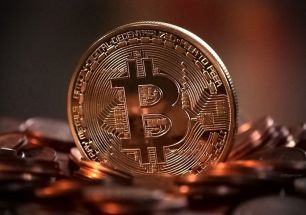Get vaccinated!

The government officially started its vaccination drive last Monday with the PGH director the first to get a jab of Sinovac, the donated Chinese vaccine. But about half of our population don’t want to get vaccinated at all. That may put our hopes for normal lives on hold.
Many are worried about side effects from the vaccine, recalling Dengvaxia. They are also asking if they will get their lives back, stop having to wear masks, and be able to socialize again if they take the jab. Scientists say they don’t have enough data yet to answer yes.
But taking a jab is a good idea. According to The New York Times, available data suggests vaccines will at least partly reduce transmission. For now, wearing a mask and social distancing, paired with increasing immunization, should reduce the number of SARS-CoV-2 cases.
In Israel, a significant decline in cases has been reported since vaccination began in December, with a 49 percent decrease observed in people over age 60.
In Britain, where more than a quarter of people have been vaccinated, data shows the vaccines are working extremely well, sharply reducing hospital admissions and deaths.
In another article, The New York Times reported that nursing homes deaths are way down… plummeting by more than 60 percent between late December 2020 and early February. The main cause is straightforward: Nursing home residents have been among the first people to be vaccinated.
Dr. Sunil Parikh, a Yale University epidemiologist, said this is another sign of how powerful the vaccines are. The decline in deaths happened even though most nursing home residents and employees have not yet received their second vaccine shots.
Whether the vaccine stops transmission is a key question. To reassure doubters, it has been pointed out that it’s highly unlikely for vaccines that are 95 percent effective at preventing symptomatic disease not to have an impact on infection.
“Data from animal studies and vaccine trials suggests that vaccination reduces asymptomatic infection, as well as the amount of virus produced in people infected.”
Dr. Angela L. Rasmussen, a virologist at the Center for Global Health Science and Security at Georgetown University Medical Center, tried to explain the issue in a signed article at The New York Times.
First of all, the doctor explained “the purpose of the COVID-19 vaccines is to prevent death and serious health complications that strain our overburdened health-care system. All the vaccines authorized for emergency use do this, and their safety and effectiveness in clinical trials have surpassed expectations.
“But most people, quite understandably, want to know something more: Will being vaccinated stop the spread of COVID-19 so they can socialize outside their bubbles and dine indoors with abandon?
“Eventually, yes.”
Scientists can speak with more certainty that the vaccines prevent transmission of the virus from one person to another once they have enough data to make a conclusion.
“Although COVID-19 and SARS-CoV-2 are often used interchangeably, they are fundamentally different. You can’t have the disease without the virus, but you can have the virus without the disease – as many asymptomatic people already know. It’s possible that vaccinated people are protected against COVID-19 themselves, but still spread SARS-CoV-2 to others who are not vaccinated.”
The primary objective of the clinical trials was to determine whether the vaccines protect against COVID-19 symptoms… not the effect on transmission.
“Clinical trials can be completed more quickly if the endpoint of the trial — the main scientific question the trial is investigating — is something that can be easily observed… It’s easier to identify participants who develop COVID-19 symptoms and then swab them to confirm.
“This study approach also makes sense from a public health perspective. Most people who are infected with SARS-CoV-2 will not die, but many will become very sick and require medical care…
“Vaccines that can transform what would normally be a severe illness into something mild and manageable thus relieve this burden on the healthcare system, saving lives and improving their quality…
“When scientists develop a vaccine against a novel virus, it’s difficult to predict whether vaccination will completely prevent infection — what’s called sterilizing immunity.
“If the COVID-19 vaccines do not provide sterilizing immunity, it means a vaccinated person can still inhale enough of the SARS-CoV-2 virus to develop an infection, and it will be swiftly cleared from the body before becoming COVID-19, but that person could still pass the infection to another person.”
But that’s not so bad.
“There are many vaccines that do not provide fully sterilizing immunity but nonetheless have huge public health benefits. Every year, the flu vaccine saves lives and keeps people out of the hospital despite the fact that it doesn’t prevent infection altogether.”
In any case, they cited historical evidence showing that “vaccines that do not prevent virus infection can still stop epidemics in their tracks.
“The polio vaccine developed by Dr. Jonas Salk, which does not provide sterilizing immunity, resulted in the rapid elimination of polio in the United States beginning in the 1950s.”
Scientists think that the available COVID-19 vaccines “are as much a victory for public health now as the Salk vaccine was then… The sooner we reduce spread in the community and protect as many people as possible through vaccination, the sooner we’ll be able to relax.”
Knowing all of that, it is clear that getting vaccinated is a social duty… we do it for ourselves and our community. But which vaccine?
From the perspective of public health officials, the one available immediately is the best one... even the Chinese vaccines... because time is of the essence. But of course, from the individual perspective, you want to be sure not just of effectiveness but also safety.
The problem with Chinese vaccines is the lack of transparency on testing data. They have not published data on their crucial large-cohort Phase 3 trials.
In contrast, Pfizer-BioNTech, Moderna, AstraZeneca, and Russia’s Gamaleya Institute have all published their Phase 3 data in respected, peer-reviewed journals.
It doesn’t help that the Duterte administration seems to be forcing the Chinese vaccines on the people, giving us no choice.
But politics aside, enough Filipinos must be vaccinated to get herd immunity. Until then, our lives remain uncertain.
Boo Chanco’s e-mail address is [email protected]. Follow him on Twitter @boochanco
- Latest
- Trending
























